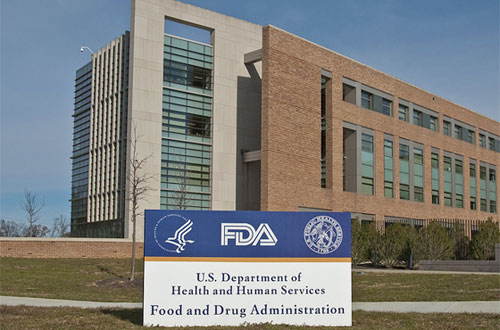
Italy’s Recordati has claimed FDA approval for Isturisa, an oral drug for adult Cushing’s disease patients who can’t be treated with surgery, or in whom surgery is ineffective.
Isturisa (osilodrostat) is the first FDA-approved drug to directly address overproduction of cortisol in Cushing’s disease by blocking the enzyme 11-beta-hydroxylase involved in the synthesis of cortisol, the body’s main stress hormone.
The swift FDA approval is a boost for Recordati, which had been concerned that the US regulator may require data from an ongoing study (LINC-4) that isn’t due to complete until the latter half of this year and could have held up approval to late 2021 or early 2022.
Cushing’s disease is a rare disorder that occurs when the body produces too much corticosteroid hormones, usually as a result of a tumour on the pituitary gland. That in turn leads to weight gain, fat build-up on the face and susceptibility to bruising.
Osilodrostat (formerly LCI699) was originally developed by Novartis, but Recordati licensed global rights from the Swiss pharma in July 2019 for $390m upfront in a deal that also included rights to Signifor and its longer-acting follow-up Signifor LAR – both based on the somatostatin analogue pasireotide. Undisclosed milestone payments are also tied to osilodrostat’s commercial performance.
“By helping patients achieve normal cortisol levels, this medication is an important treatment option for adults with Cushing’s disease,” commented Mary Thanh Hai, acting director of the Office of Drug Evaluation II at the FDA. The FDA approval follows a green light from the European Commission in January.
Isturisa was shown to effectively lower cortisol levels in a main study involving 137 patients with Cushing’s syndrome who were initially treated with Isturisa given twice-daily over 26 weeks. The dose was adjusted for each patient until their levels of cortisol were under control and within the normal range.
After this lead-in phase, patients whose cortisol levels were under control – 71 of them – were given either Isturisa or placebo and the study looked at the proportion of patients whose cortisol levels remained under control. Eight weeks later, 86% (31 out of 36) of patients treated with Isturisa had their cortisol levels under control, compared with 29% (10 out of 34) of patients given placebo.
Recordati is expecting peak sales of Isturisa of more than $100m a year, according to chief executive Andrea Recordati. That would add to pro forma sales of around $75m last year for the Signifor franchise, with potential to raise that to $100m, he said.
Patent protection extends to 2031 for Isturisa and 2026 for Signifor LAR, according to Recordati, which had total revenues of around €1.5bn in 2019.
Isturisa could however face competition fairly soon from Strongbridge Biopharma’s Recorlev (levoketonazole), which hit the mark in a phase 3 programme reported last year. Recorlev – a single-isomer version of a well-established antifungal agent – also blocks 11-beta-hydroxylase as well as other enzymes in the cortisol synthesis pathway.
That broader activity is a plus, claims Strongbridge, as it prevents ‘feedback disinhibition’ – a process where the pituitary produces higher levels of other adrenal steroids like aldosterone precursors and androgens which could produce off-target effects.
Strongbridge is expecting top-line data from a confirmatory phase 3 trial in the second or third quarter of this year, which could set up marketing applications before the end of 2020.




